Pollinators and the future of food

Bumblebee, Southern Norfolk Sand Plain, ON (Photo by Mhairi McFarlane/NCC Staff)
Starting my day with a variety of fresh fruits is my version of a fresh cup of coffee. One of my fondest memories is from my time in Vancouver several years ago, visiting a nearby park filled with highbush blueberries. A friend and I would spend...
Gardening: Small choices make a big difference
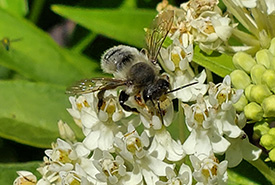
Megachile (leafcutter, mortar, and resin) bee on swamp milkweed (Photo by Sarah Ludlow)
Well, it is that time of year again — when the hope of spring and warmer temperatures is edging ever closer, especially in my home province of Saskatchewan. It is also the time when I begin starting my seeds to plant in my garden this...
A rare encounter with a rare species
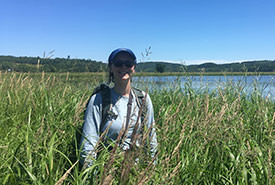
Allison Patrick stands among the tall grasses and wildflowers at NCC's property on Hog Island. (Photo by NCC)
As a conservation biologist with the Nature Conservancy of Canada (NCC) in Fredericton, I spend each summer working in some of the most beautiful parts of New Brunswick and Prince Edward Island. One of my favourite areas in New Brunswick is...
April showers bring May flowers, and May flowers bring…flies?
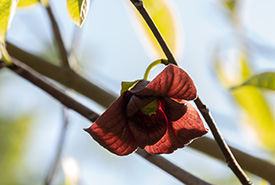
A pawpaw flower (Photo by Andrea J. Moreau)
Come spring, natural spaces are always buzzing with activity. The warmer weather and sweet floral scent carried on the wind attract people and prospective pollinators alike. I was no exception to this rule on one late May afternoon, excitedly...
Appreciating insects this World Animal Month
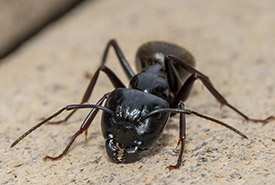
Eastern black carpenter ant (Photo by Wally Simpson, CC BY-NC 4.0)
October is World Animal Month, a time for us to reflect on the important roles that animals play in our lives. Animals are an integral part of human existence, and this month gives us a chance to appreciate their presence and create solutions for...
A day in the life of a field biologist
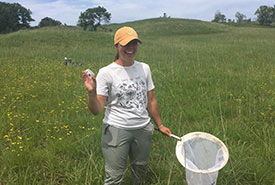
Field technician Breanne Kenner with a successful catch! (Photo by NCC)
There are numerous findings in the world of science, and conservation biology specifically, that would not be possible without field work. As part of my conservation internship with the Nature Conservancy of Canada (NCC), I have been given the...
The buzz about bumble bees
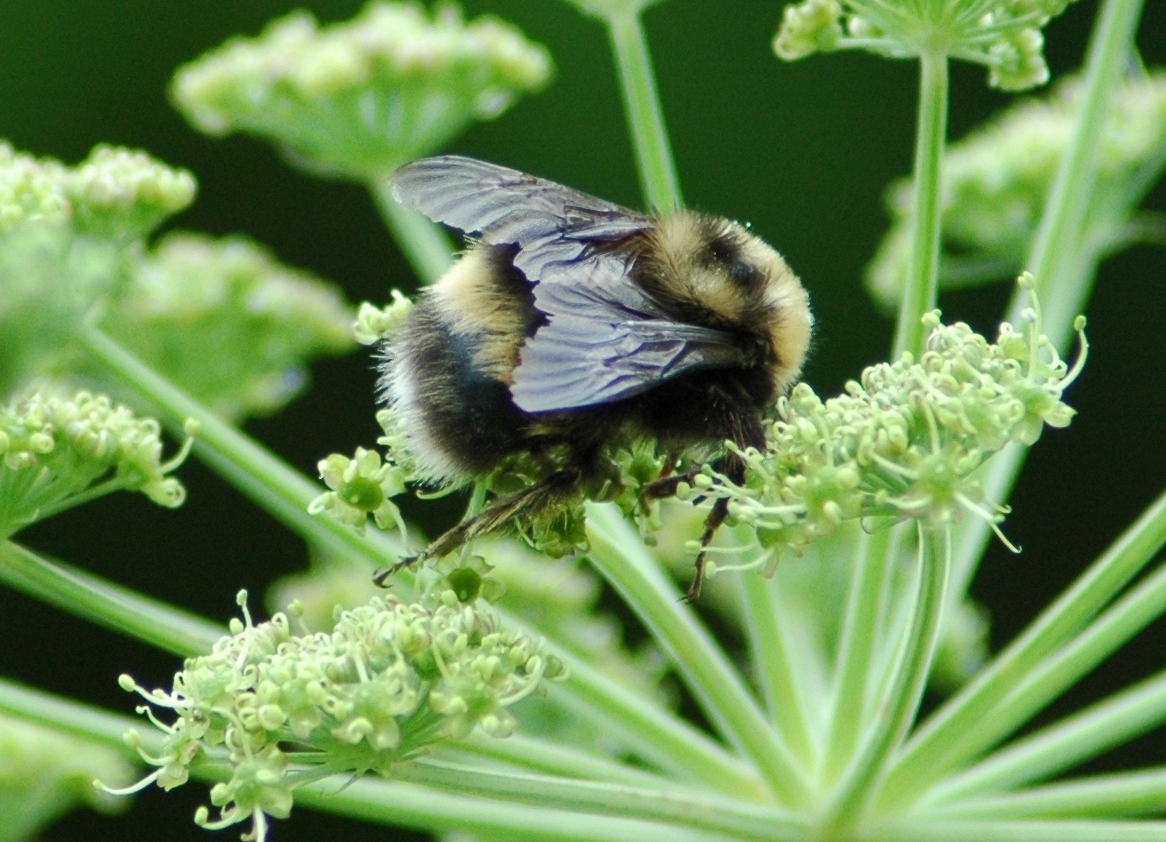
Western bumble bee (Photo by sydcannings, CC BY-NC 4.0)
The western bumble bee is a medium-sized (measuring one to two centimetres in length) bumble bee, with a band of yellow hair across its thorax (the area between its head and abdomen), in line with the base of its wings. It also most often has a...
My native species bring all the pollinators to the yard
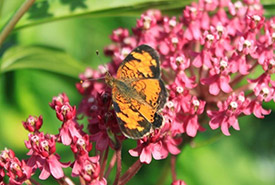
Northern crescent butterfly on swamp milkweed flowers (Photo by Jaimee Morozoff/NCC staff)
Now that spring has finally made its way across Canada (in some places it was slower in arriving than others), gardening season is in full swing! With all of the choices present at our local nurseries and big box stores, it is easy to get carried...
Paw in claw: Friendships in the wild
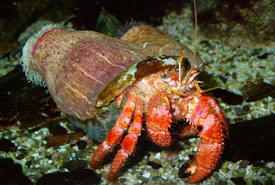
A sea anemone hitching a ride on a hermit crab. (Photo from Wikimedia Commons)
Friendships are one of the most organic things that can happen between humans. An often magical thing, these bonds are strong and can last a lifetime. While these human connections are no doubt valuable, for animals, “friendships,”...
We’re in a biodiversity crisis. What we plant and how we alter landscapes matters
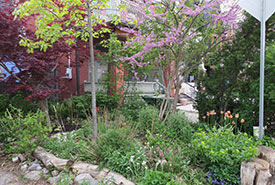
Front yard naturalization in spring. (Photo by Lorraine Johnson)
Spring hadn’t officially sprung, but the season was warm, and so the annual ritual began. People began to clean up the dried stalks and dead leaves protecting the earth. While tidying up, people were also throwing out countless insects...

